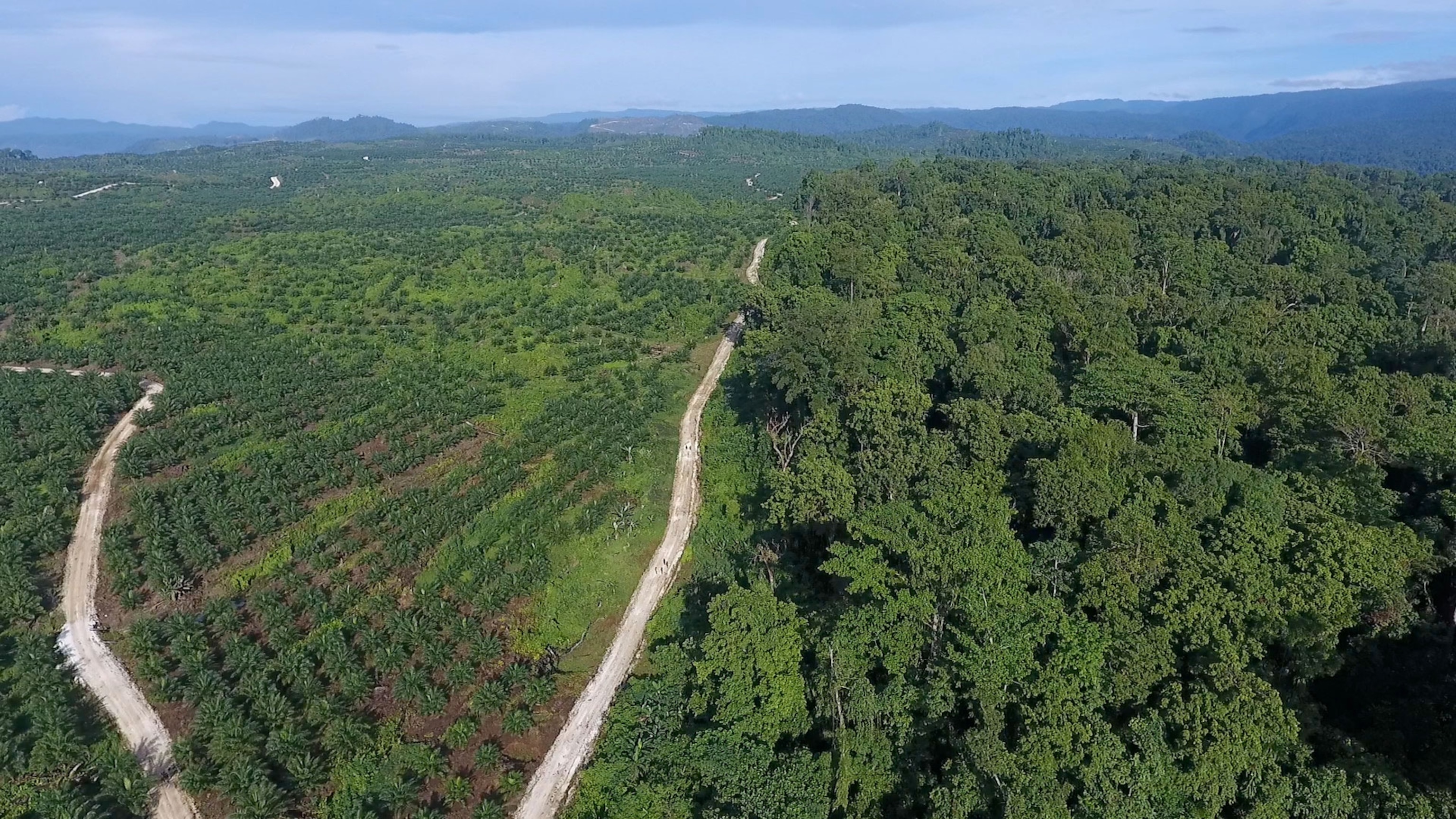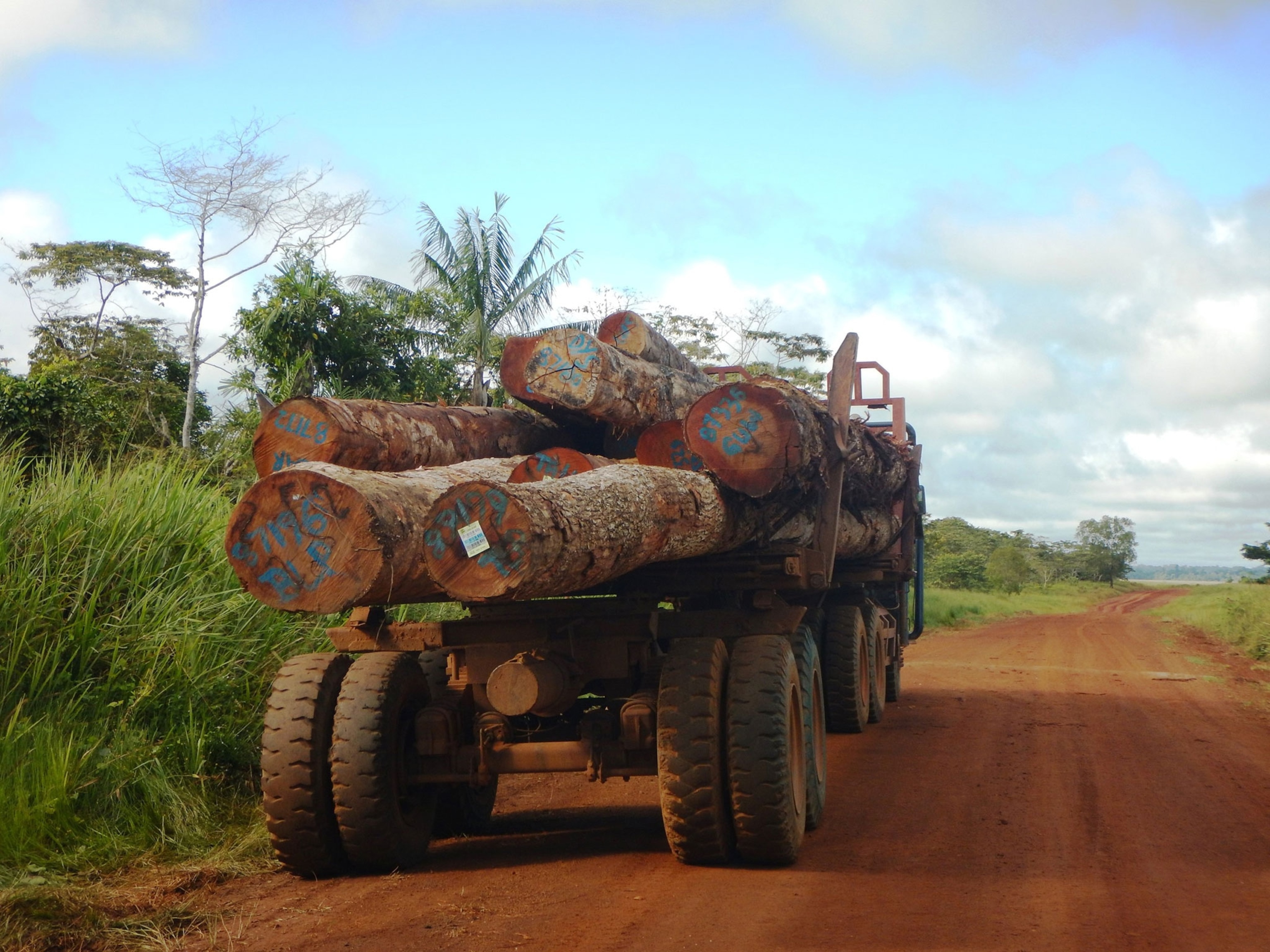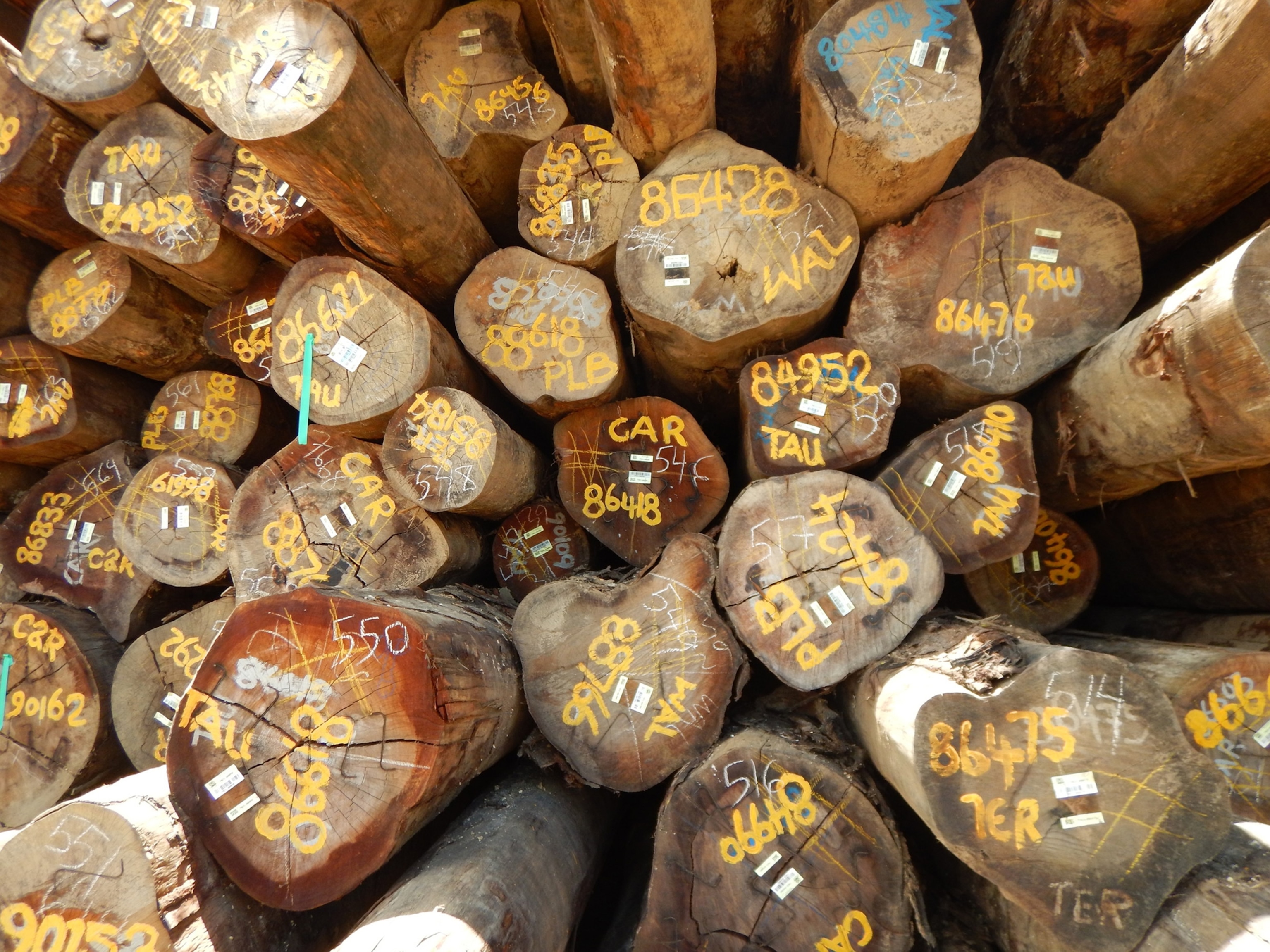Your Floor May Be Made of Illegal Tropical Wood
A new report traces exotic timber from Papua New Guinea, where illegal logging is common, via China to U.S. stores.
U.S. consumers may unwittingly be fueling illegal logging in Papua New Guinea’s tropical forests simply by shopping at furniture stores and home improvement retailers like The Home Depot. A two-year investigation by Global Witness, an international non-profit exposing injustice and environmental destruction, has tracked the 9,000-mile journey of timber from the South Pacific nation, where illegal logging is rampant, through Chinese factories to retail shelves in the U.S. The report says companies are not doing enough to ensure the wood they're selling is legal.
While the U.S. bans import of illegal wood, China does not. And China sells $15 billion worth of wood products to the U.S. every year. (Last year U.S. flooring giant Lumber Liquidators agreed to pay $13 million in penalties for importing Chinese-made products linked to illegal logging in Russia, a violation of the Lacey Act, which bans illegal trade of illegal wildlife and plants.)
Home to the world’s third largest tropical rain forest, with mountainous terrain and hundreds of islands, Papua New Guinea is considered one of the most biodiverse places on Earth. The Global Witness report, “Stained Trade,” documents how 12 percent of its land—more than eight million acres—has been given over to foreign interests in a rent-free, land-leasing scheme for up to 99 years, with the government collecting royalties on export logs.
At least 846 indigenous languages are spoken among Papua New Guinea’s seven million people, and under the country’s constitution, indigenous communities own the land they’ve traditionally lived on and used—and the forests that grow there.
Despite this, and a 2013 government inquiry revealing that most leases in indigenous areas violate the law, the government has not acted to stop the illegal logging, according to Lela Stanley, a co-author of the Global Witness report. “Recently re-elected Prime Minister Peter O’Neill has been promising for years to cancel illegal leases, but nothing has changed,” Stanley told National Geographic.
Often the first time a remote community learns of a lease is when a barge loaded with bulldozers and logging equipment shows up on the river, she said. Men begin to clear-cut the old-growth forest that has sustained families for many generations. Armed police on the barges threaten anyone who obstructs the logging with arrest or beatings and destruction of their homes. “It’s upended their way of life,” Stanley said.
Nearly all the millions of forested acres have been leased to Malaysian logging companies, which have moved operations from their own depleted forests to Papua New Guinea and the nearby Solomon Islands.
Protests and appeals to the government haven’t worked. Undergoing legal action is difficult and costly for indigenous groups, and court cases take years to adjudicate.
Meanwhile the clear-cutting goes on, destroying traditional sources of food (forest animals), clean water (by binding soil, trees prevent erosion and siltation of streams and rivers), traditional medicines, and building materials, the report finds. Between 2009 and the end of 2016 some 8.2 million cubic yards of timber had been taken. Placed end-on-end, the logs would stretch from New York City to Los Angeles and back again.
“Most people had no idea what was happening until the logging companies arrived,” said Eddie Tanago, of Act Now!, a community advocacy organization in Port Moresby, Papua New Guinea’s capital. “The leases turn local people into foreigners on their own land,” Tanago said, adding that “the government is corrupt, and police are used to suppress any protests.”
A former police commander who worked in logging camps as part of the security team told Global Witness that the police were well paid “to protect the interest of the company.”
“Police came to our community at night. People were scared that they might burn down our houses,” said Paul Pavol, a local landowner-turned-activist. Pavol, who won an international award for his struggle to protect the forests, is challenging one of the leases in court on the grounds that it involved fraud and forgery.
“These people say they own the land now, and they do whatever they want. Something’s got to be done to save our forest,” Pavol said.
FURNITURE AND FLOORING BEHEMOTH
China is the world’s top furniture and flooring maker, acquiring more timber than any other country. In recent years one out of every 10 logs China imported has come from the Papua New Guinea leases. Global Witness found tropical hardwood flooring made from taun (sometimes called Pacific mahogany) for sale by U.S. small flooring importers as well as giant retailers, including The Home Depot and Nature Flooring Industries, Inc., a U.S. subsidiary of China’s largest flooring company, Nature Home. Nearly all taun logs come from Papua New Guinea or the Solomon Islands, where illegal logging is common, according to the Global Witness report.
In April Global Witness informed 10 U.S. companies about their findings. The Home Depot had already decided to stop selling the wood in 2016 because of poor sales, according to spokesman Stephen Holmes. Home Legend, the retailer's supplier, along with Nature Home, are reviewing their supply chains and sourcing procedures, the report says. Other U.S. companies listed in the report did not respond to Global Witness's requests for comment.
“It’s impossible to verify the legality of tropical hardwood products coming from China,” said David Gehl, Eurasia programs coordinator with the Environmental Investigation Agency, an international nonprofit known for its undercover operations. “I’ve seen the same documentation used for different loads of wood,” said Gehl, who was not involved in the Global Witness investigation.
According to Gehl, China’s enormous wood manufacturing industry is extremely complex, with many thousands of companies, from mom-and-pop sawmills to multimillion-dollar log importers and even larger manufacturers of wood products. “Traceability is basically impossible.”
Government officials in China are well aware that their wood industry may be the largest importer of illegal logs, he said, but all they’ve done to fix that problem is set voluntary guidelines. “There’s been zero impact so far.”
What China has also done is ban logging in most of its own natural forests. At the recent World Economic Forum in Davos, China’s leaders touted this ban as part of their efforts to combat climate change. Meanwhile, Gehl said, the country is by far the world’s biggest importer of logs from countries such as Russia, Mozambique, and Zambia, as well as Papua New Guinea and the Solomon Islands.
“If China wants to show real global leadership, it must prohibit imports of illegal logs,” he said, adding that companies in the U.S. and elsewhere shouldn’t be buying Chinese-made products made from tropical hardwoods unless there’s real proof that they’re from legal wood.
Stephen Leahy covers international environmental issues. He is co-winner of the 2012 Prince Albert/United Nations Global Prize for reporting on climate change and is the author of Your Water Footprint: The Shocking Facts About How Much Water We Use To Make Everyday Products, winner of the Best Science Book 2014. Follow him on Twitter.



